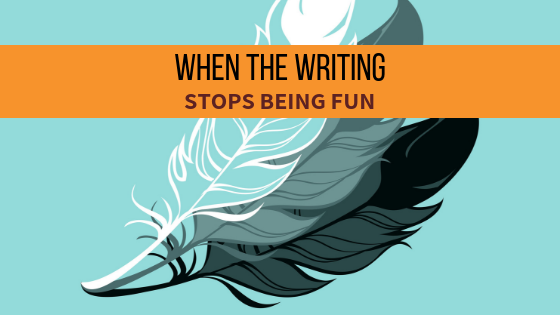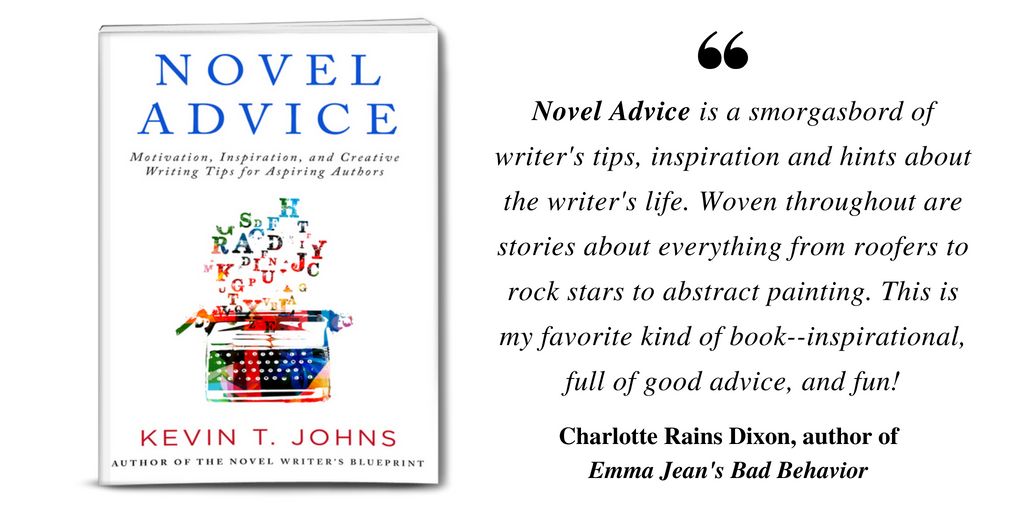It’s November 19.
If you’re participating in National Novel Writing Month (NaNoWriMO), you’re about to finish up your third week of writing.
By this point, you have almost certainly experienced a dip in enthusiasm.
I’ll bet those first two weeks were exciting. You were pounding out words and making progress. You were moving through Act I of your novel, and it was fun and easy.
That’s all well and good, but something usually happens around week three. At first it’s just a nagging feeling at the back of your mind, but before long it’s taken over. The novelty has worn off. The enthusiasm wanes, and you find yourself losing energy for the story.
The fun disappears and the writing starts to feel like work.
This is a normal part of the novel writing process. Under regular circumstances, it might take an aspiring author six months or even a year to experience this dip, but thanks to the accelerated pace of NaNoWriMo, all it’s taken you is three weeks. (Lucky you, right?)
The process of writing a book, just like the key steps of any major project, can be chartered along a transition curve, also known as S Curve because it looks kind of like a mirrored image of a horizontal S.
(Shawn Coyne has used the similar Kubler-Ross Change Curve concept to explore story structure. Read more here. Seth Godin has also discussed an S curve, the Garner Hype Cycle, in the context of marketing.)
It’s important to understand the transition curve because where you are at currently in the process, that moment when it stops being fun, is an extremely important inflection point. Where you go from here will play a major role in determining whether your project is a failure or success.
The transition curve looks like this:
Phase 1: Uninformed Optimism
You begin a project with uninformed optimism.
You don’t know what you don’t know, and so you’re filled with enthusiasm, excitement, and the passion to embark on this new endeavor.
Naiveté is your key driver at this point.
Phase 2: Informed Pessimism
As you work on the project, you begin to absorb feedback via experience, advice, and new information coming into your circle of knowledge.
As a result, you begin to realize there may be better ways to do the things you’ve been doing. This is also the point where you realize the project may not be as easy or as fun as you thought.
With this new information in hand, you start down the slope of informed pessimism.
Phase 3: Crisis of Meaning
The slope of informed pessimism leads downwards to an eventual crisis of meaning.
This is the point where, as an author, the voice in your head speaks up and asks:
“Can I really do this?”
“Did I choose the wrong story?”
“Am I a good enough writer?”
“Do I know enough about the craft?”
“Is it worth continuing with this story?”
“Should I start over?”
The crisis of meaning is the spot in the transition curve where most writers give up.
Faced with the pressure of informed pessimism followed by a crisis of meaning, the majority of people crash and burn.
Phase 4 (Option A): Crash and Burn
The average number of words written by a NaNoWriMo participant is 12K words.
That’s because by 12K words most new writers have hit the crisis of meaning stage and have decided to throw in the towel.
But there’s an alternative to giving up.
No matter how well-trained, all runners eventually hit “The Wall” at some point. The Wall is that moment when a runner’s body tells them they can’t run any further. What good runners know, and what smart writers learn, is we all have the ability to push through The Wall.
Phase 4 (Option B): Informed Optimism
On the other side of the wall, the other side of the crisis of meaning, you’re going to discover the wisdom of experience, and with that wisdom, you’ll begin ramping up a new upward slope of informed optimism.
Ask any writer who has successfully written and published a book, and they’ll tell you there wasn’t just one wall, but many walls they had to push through to find success.
—
If you aren’t in the bottom of the transition curve right now, that’s great. Keep forging ahead. Just know that you’ll get there eventually. Every project goes through the transition curve. The dip is unavailable.
The question to ask yourself is what you are going to do when you get to the crisis of meaning?
Will you give up, like most people do?
Or will you persevere?
Every author you’ve ever read chose to persevere. I hope you make the same choice. Informed optimism is a great place to be.
—
Enjoy this article? If so, you’ll love Novel Advice: Motivation, Inspiration, and Creative Writing Tips for Aspiring Authors. Grab a FREE copy by clicking the image below:


